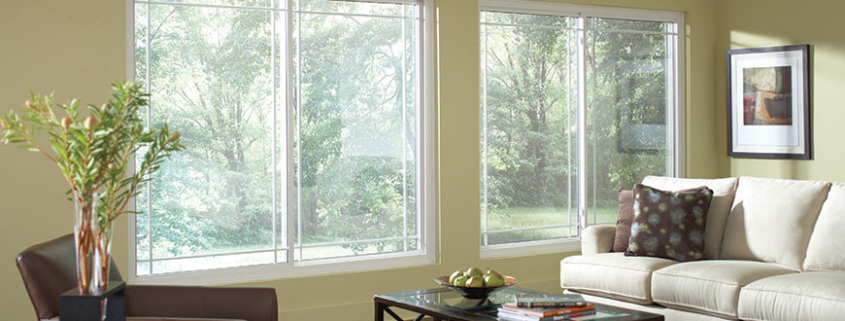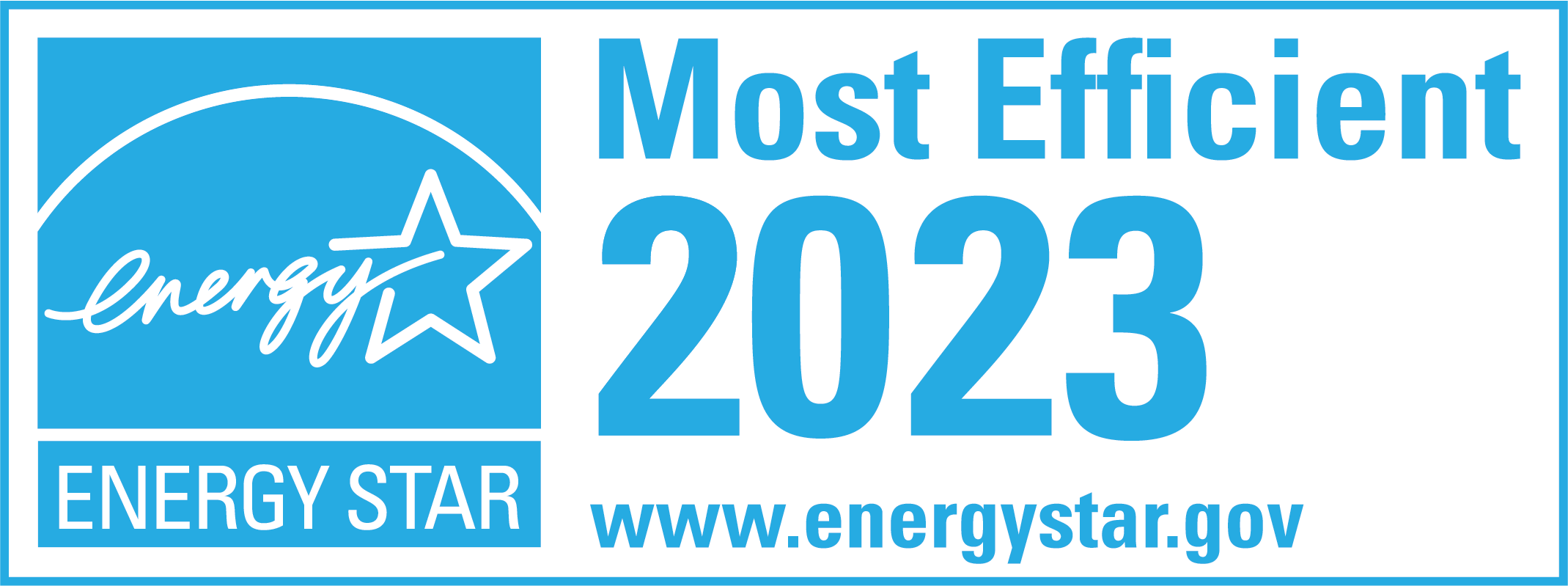Vinyl vs Aluminum Windows: Which is Better
When choosing windows for your home, there are many factors to consider. One of the most important decisions you’ll face is whether to go with vinyl or aluminum windows. Both materials have unique benefits and drawbacks, and understanding the differences can help you make an informed decision. In this article, we’ll look closely at the vinyl vs aluminum windows topic, comparing their durability, energy efficiency, maintenance requirements, and cost.
Understanding Vinyl and Aluminum Windows
When choosing windows for your home, there are a variety of options available. Two popular choices are vinyl windows and aluminum windows. Let’s take a closer look at the basics of each type.
The Basics of Vinyl Windows
Vinyl windows are made from a type of plastic called polyvinyl chloride (PVC). This material is known for its durability and resistance to moisture, making vinyl windows a great choice for areas with high humidity or frequent rain. In addition to their practicality, vinyl windows are also highly customizable. They come in various styles and colors, allowing homeowners to find the perfect fit for their home’s aesthetic.
One of the biggest advantages of vinyl windows is their affordability. Compared to other window materials, such as wood or fiberglass, vinyl windows are often the most budget-friendly option. This makes them a popular choice for homeowners who want to upgrade their windows without breaking the bank.
Another benefit of vinyl windows is their low maintenance requirements. Unlike wood windows, which may need to be repainted or stained periodically, vinyl windows are virtually maintenance-free. They do not require painting or staining and can be cleaned with soap and water to keep them looking their best.
The Basics of Aluminum Windows
Aluminum windows, on the other hand, are made from aluminum extrusions. This material is known for its strength and durability, making aluminum windows a long-lasting option for homeowners. In addition to their durability, aluminum windows are corrosion-resistant, making them an excellent choice for coastal or humid environments.
One of the standout features of aluminum windows is their sleek and modern appearance. The slim frames of aluminum windows allow for larger glass areas, maximizing natural light and providing unobstructed views. This makes aluminum windows a popular choice for contemporary homes or those looking to achieve a minimalist aesthetic.
While aluminum windows offer many advantages, it’s important to note that they are typically more expensive than vinyl windows. The higher cost is due to the manufacturing process and the materials used. However, many homeowners find that the benefits of aluminum windows, such as their durability and modern design, outweigh the higher price tag.
It’s also worth mentioning that aluminum windows can be less energy-efficient compared to vinyl windows. Aluminum is a good conductor of heat so it can transfer heat or cold into your home more efficiently. To combat this, aluminum windows are often equipped with thermal breaks or insulating materials to improve energy efficiency.
Ultimately, the choice between vinyl and aluminum will depend on your needs and preferences. Both options offer unique benefits and can enhance the look and functionality of your home. Whether you prioritize affordability, low maintenance, or a modern design, there is a window type that will meet your requirements.
Comparing the Durability of Vinyl and Aluminum Windows
When choosing windows for your home, durability is a key factor. After all, you want windows that can withstand the test of time and provide long-lasting performance. In this regard, both vinyl and aluminum windows have their unique advantages and considerations.
Lifespan of Vinyl Windows
One of the main advantages of vinyl windows is their exceptional durability. Vinyl is a synthetic material resistant to rot, rust, and corrosion, making it an ideal choice for areas with high humidity or salty air, such as coastal regions. Vinyl windows are also more resistant to impact and extreme weather conditions than aluminum ones.
But how long can you expect vinyl windows to last? With proper care and maintenance, vinyl windows can last up to 30 years. This is due to the inherent properties of vinyl, which make it highly resistant to the elements and the wear and tear of daily use. So, if you invest in vinyl windows, you can enjoy their benefits for several decades without worrying about frequent replacements.
Lifespan of Aluminum Windows
Aluminum windows, on the other hand, are also known for their durability. However, they do have some considerations when it comes to longevity. Aluminum is a metal prone to corrosion over time, especially in coastal areas where saltwater and moisture can accelerate the process.
But don’t let this discourage you from considering aluminum windows. Advancements in technology have led to the development of corrosion-resistant aluminum windows. These windows are treated with protective coatings or anodized finishes that create a barrier against corrosion. With regular maintenance and protection, aluminum windows can last for decades, providing reliable performance and aesthetic appeal.
It’s important to note that the lifespan of both vinyl and aluminum windows can be influenced by various factors, including the quality of the materials used, the installation process, and the level of maintenance. Regular cleaning, lubrication of moving parts, and inspection for any signs of damage or wear can help prolong the lifespan of your windows, regardless of the material.
In conclusion, both vinyl and aluminum windows offer durability and longevity. Vinyl windows excel in their resistance to rot, rust, and impact, while aluminum windows can be made corrosion-resistant with the right treatments. Ultimately, the choice between the two will depend on your specific needs, preferences, and the environmental conditions in your area.
Energy Efficiency: Vinyl vs Aluminum
How Energy Efficient are Vinyl Windows?
Vinyl windows are known for their excellent insulation properties. They have a high thermal resistance, which helps to keep your home cool in the summer and warm in the winter. Vinyl windows also have low air leakage rates, reducing energy loss and helping to lower your heating and cooling costs.
How Energy Efficient are Aluminum Windows?
Aluminum windows, on the other hand, are not as energy-efficient as vinyl windows. Aluminum is highly conductive, which quickly and efficiently transfers the outside elements. Without proper thermal breaks, aluminum windows can contribute to energy loss. However, newer aluminum window designs include thermal barriers and improved insulation, making them more energy-efficient than their predecessors.
Maintenance and Care for Vinyl and Aluminum Windows
Maintaining Vinyl Windows
One of the major advantages of vinyl windows is their low maintenance requirements. They do not require painting or staining and can be easily cleaned with soap and water. Additionally, vinyl windows are moisture-resistant, which helps prevent issues such as rotting, warping, or peeling. Regular inspections and cleaning are typically enough to keep vinyl windows in top condition.
Maintaining Aluminum Windows
Aluminum windows require more maintenance compared to vinyl windows. The aluminum frames can oxidize over time, leading to a dull appearance. Regular cleaning, as well as applying a protective coating or paint, is necessary to prevent corrosion. It’s also important to check and replace any worn or damaged weatherstripping to maintain the energy efficiency of aluminum windows.
Cost Analysis: Vinyl and Aluminum Windows
Initial Costs of Vinyl Windows
Regarding cost, vinyl windows tend to be more affordable than aluminum windows. The materials used in vinyl window manufacturing are less expensive, making them a cost-effective choice for budget-conscious homeowners. Additionally, the installation process for vinyl windows is generally simpler and quicker, resulting in lower labor costs.
Initial Costs of Aluminum Windows
Aluminum windows are typically more expensive than vinyl windows due to the higher cost of materials and manufacturing processes. Additionally, installing aluminum windows requires more expertise and time, which can increase labor costs. However, it’s worth noting that aluminum windows may offer a better return on investment in terms of durability and energy efficiency.
Conclusion
Both vinyl and aluminum windows have their advantages and disadvantages. Vinyl windows are known for their affordability, durability, and energy efficiency, making them a popular choice for many homeowners. On the other hand, aluminum windows offer a sleek, modern appearance and can withstand extreme weather conditions with proper maintenance. Ultimately, the right choice will depend on your individual preferences, budget, and specific needs for your home. It’s always a good idea to consult a professional window installer to get personalized recommendations and find the best windows for your home.
Window Depot USA of Tyler, TX, combines premium grade replacement window products with factory-direct pricing, a Transferable Lifetime Limited Warranty, and professional, courteous installation to offer the very best value in the industry today! Call us at (903) 752-0449 for a free, no-obligation quote, and find out firsthand what sets Window Depot of Tyler, TX, apart from the rest of the crowd. We’d be honored by the opportunity to earn your business!
Our service area includes the following towns: Tyler, Whitehouse, Bullard, Lindale, Chandler, Canton, Mineola, Longview, Kilgore, Henderson, Gilmer, Gladewater, Marshall, Hallsville, and Palestine.









